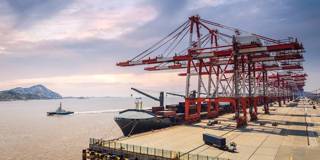With global trade talks deadlocked, mega-regional agreements seem poised to re-shape the world economy. But such agreements could lead to economic fragmentation, unless there is some consistency among them, they are backed by coherent national policies, and they exist within a functioning multilateral trade system.
GENEVA – Over the last half-century, the world has been undergoing a “great convergence,” with per capita incomes in developing countries rising almost three times faster than those in advanced countries. But developments in 2013 revealed that the open trade regime that has facilitated this progress is now under grave threat, as stalemate in multilateral trade negotiations spurs the proliferation of “preferential trade agreements” (PTAs), including the two biggest ever negotiated – the Trans-Pacific Partnership (TPP), and the Trans-Atlantic Trade and Investment Partnership (TTIP).

GENEVA – Over the last half-century, the world has been undergoing a “great convergence,” with per capita incomes in developing countries rising almost three times faster than those in advanced countries. But developments in 2013 revealed that the open trade regime that has facilitated this progress is now under grave threat, as stalemate in multilateral trade negotiations spurs the proliferation of “preferential trade agreements” (PTAs), including the two biggest ever negotiated – the Trans-Pacific Partnership (TPP), and the Trans-Atlantic Trade and Investment Partnership (TTIP).